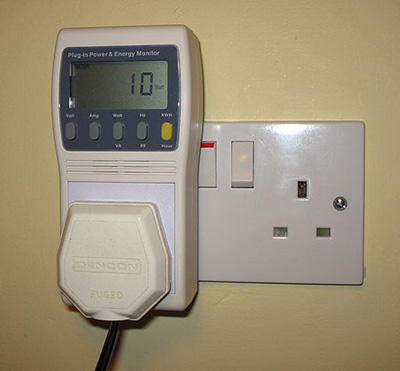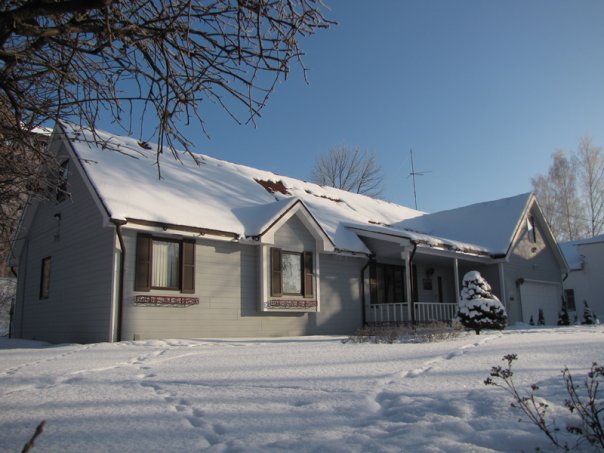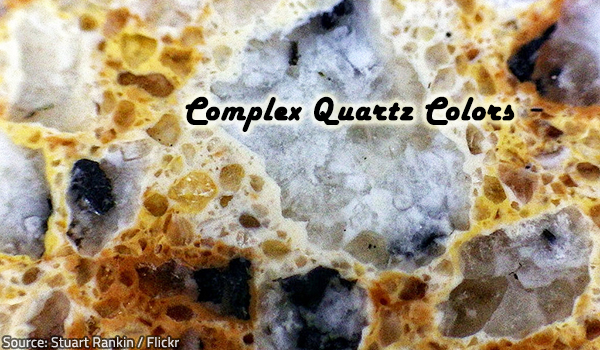Choosing Between Natural Stone and Solid Surfaces for Countertops
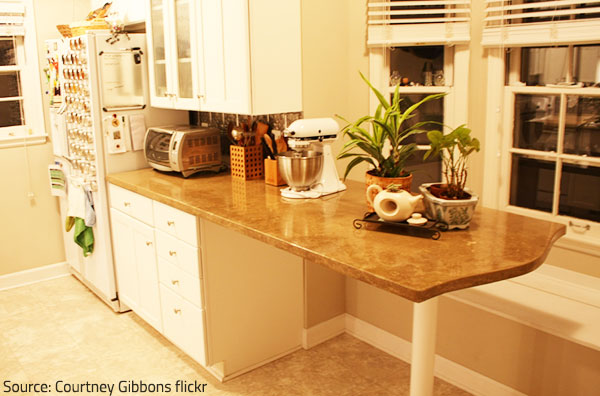
Convenient and elegant, your countertop is certainly the centerpiece of your kitchen.
When it comes to interior design, homeowners are usually facing a dilemma whether to put an emphasis on practical value or on aesthetic value. The temptation to create your home decor based on looks alone is really great. However, convenience, durability, maintenanceMaintenance is the routine care, inspection, and repair of a... More, and, of course, cost, are also important factors to consider. If you ignore any of those factors for the sake of charming looks, you may end up with nice furnishings that are not comfortable and too difficult or expensive to maintain. On the other hand, you will never be able to enjoy your own home if your practical surroundings don’t match your personal style and preferences. So, when setting up a new home or renovating your property, you have to find a way to combine efficiency with aestheticism, so that your home provides all the comfort you need and all the coziness and appeal you desire.
The challenge becomes even greater when remodeling a kitchen and, in particular, your kitchen countertops. No doubt a multipurpose countertop is of great assistance to you in everyday activities – it may serve as a cutting board, hot padThe pad is the cushion or underlayment beneath carpet that p... More, or food prep surface, but also as a desk, coffee table, snack bar, etc. The countertop is certainly the centerpiece of your kitchen, so you need a surface that’s durable, attractive, and easy to keep in good condition. Therefore, it is a good idea to carefully weigh all the pros and cons of different types of countertops before making a final decision for your kitchen renovation project.
How to Choose Countertops
The variety of options you have when it comes to countertop materials and designs is really overwhelming. You can choose from hundreds of colors, patterns, and textures, in materials ranging from natural stone and acrylic sheets to butcher blocks and quartz composites.
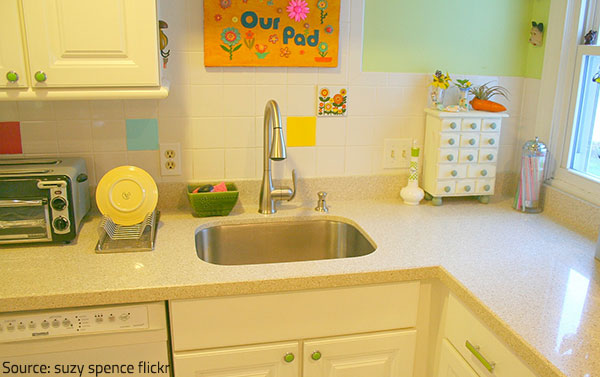
The type of counterop you choose for your kitchen should match both your lifestyle and your artistic taste.
So, before settling on a countertop surface, you need to assess your lifestyle and your needs. If you have a large family and use your kitchen countertops to prepare food on a daily basis, you need a very durable and easy to maintain surface that will not trap dirt or harbor bacteria growth. On the other hand, if you often eat out and rarely cook at home, if you are used to having people over for a cocktail party around the countertop, or just need elegant ambience in commercial or other official settings, you will certainly prefer a glamorous look and feel over more practical but simpler surfaces.
The great choice of available countertop materials and designs provides an easy solutionA solution is a homogeneous mixture of two or more substance... More to your dilemma – even if the material whose colors and patterns you like doesn’t fit your lifestyle or your budget, you will certainly be able to find another material which perfectly suits your needs and your aesthetic taste.
Types of Countertops
The only way to make an informed decision for your kitchen design is to compare different countertop materials in terms of functionality, aesthetic value, and cost.
Natural Stone Countertops
Natural stones are renowned for their unique beauty and natural feel – they have rich textures and warm colors, varied patterns and particular character that add great charm to the ambience.
Granite Countertops
Once very expensive and rare, nowadays granite is the top choice for stylish countertops.
-
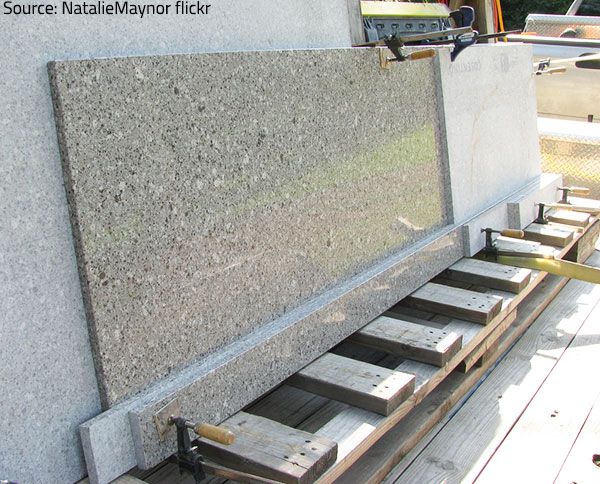
You can’t find two granite slabs that are exactly the same – each one has unique colors and patterns.
Practicality – when properly sealed, granite is very durable and easy to maintain. It stands up well to splashes, knife nicks, heat, and other wear and tear and doesn’t accumulate excessive dirt and grime. However, you are advised to clean the surface regularly with a specialized stone cleaner and to avoid using harsh or abrasive cleaning products that may ruin the delicate material;
- Appeal – granite comes in a wide variety of rich colors and interesting patterns that make it unique and extremely beautiful. However, no two pieces are exactly the same, so seams are plainly visible, especially if the stone has veins or directional movement in the pattern. You can choose between two types of finishes (polished finish that results in a shiny look and often darkens the appearance of the stone, or honing which is soft and matte) and a variety of edgings that can be crafted to further enhance the beauty of your kitchen design;
- Price – expect to pay between $75 and $250 per square foot, depending on the granite color and complexity of the fabrication.
Marble Countertops
The splendid look and feel, typical of marble, have made it symbolic of elegance and high style.
- Practicality – marble stands up to heat well which makes it very suitable for pastry and baking stations. However, it is quite soft and susceptible to stains and scratches, even when sealed, so marble countertops require delicate use and greater care;
- Appeal – marble has been praised for its unparalleled charm ever since ancient times. Peerless in terms of luminescence and distinctive veining, this elegant natural stone is indeed stunningly beautiful;
- Price – marble countertops will cost you between $100 and $300 per square foot, including installation.
Soapstone Countertops
-
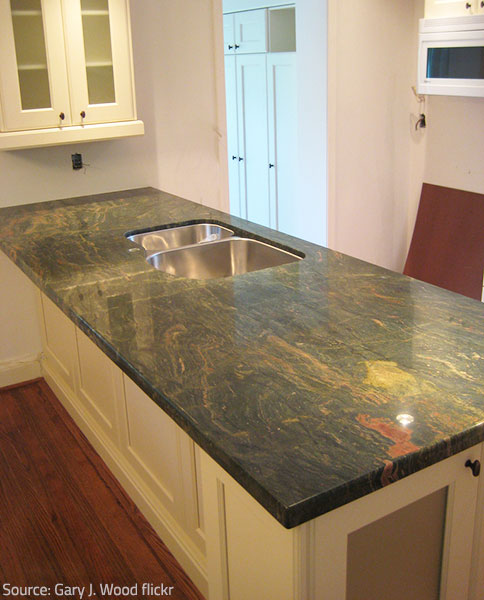
Stone countertops add unique charm to your home decor.
Practicality – soapstone is very porousPorous describes a material that contains small openings or ... More and must be sealed with mineral oil to reduce staining. It may crack over time and can’t handle knife scratches and nicks as well as some other types of stone surfaces;
- Appeal – soapstone comes in fewer colors (typically different shades of green) but they are very rich and warm. This soft stone acquires beautiful patina with time and is really charming to look at;
- Price – a square foot of installed soapstone will cost you about $100-$150.
Limestone, slate and other stone countertops are also common, but they are all quite soft and susceptible to stains and scratches, so their maintenanceMaintenance is the routine care, inspection, and repair of a... More requires a lot of elbow grease.
Natural stones are unique and extremely appealing but they come at a higher price and require more upkeep than manufactured surfaces. All natural stone countertops must be sealed periodically and treated with great care.
Solid Surface Countertops
Solid surfaces are made from acrylic and polyester blends. They can be manufactured in hundreds of different colors and textures and allow for a great variety of edge profiles, so the design possibilities are virtually limitless.
- Practicality – solid surfaces can withstand stronger impact than natural stone surfaces. However, intense heat may cause seams to crack and colors to fade, so avoid placing hot pans directly on the countertop. Solid surfaces are nonporous which makes them excellent for food preparationPreparation is the steps taken to ready a property, equipmen... More as they are very hygienic and don’t harbor bacteria growth. Cleaning is also quite easy and no sealing is required. What’s more, solid surface tops are durable and highly resistant to stains and scratches. They are easily repairable and/or renewable, as any accidental damage can be sanded and buffed out by a professional. Solid surface countertops can be formed into nearly any shape and size and sinks can be under-mounted. Seams are fused together to create undetectable joints which allows great design flexibility and helps prevent accumulation of dirt and debris;
- Appeal – you can choose from hundreds of colors and patterns, many of which perfectly imitate natural stone. The color is controlled during the manufacturing process, so it is consistent throughout the entire sheet. The great flexibility and diversity, typical of the material, provide the chance for unique designer creations – you can have the exact shape and appearance of your kitchen countertops, you have envisaged. However, solid surfacing may have a very artificial look and feel;
- Price – the cost for solid surface countertops may vary between $35 and $100 per square foot (installed), depending on your particular requirements. Most solid surface countertops come with a ten-year warranty.
Solid surface countertops are often mistakenly referred to as Corian countertops after the brand name under which they were first sold. They have been commonly used in commercial and residential kitchens for over 40 years and have proven to be of great practical and aesthetic value.
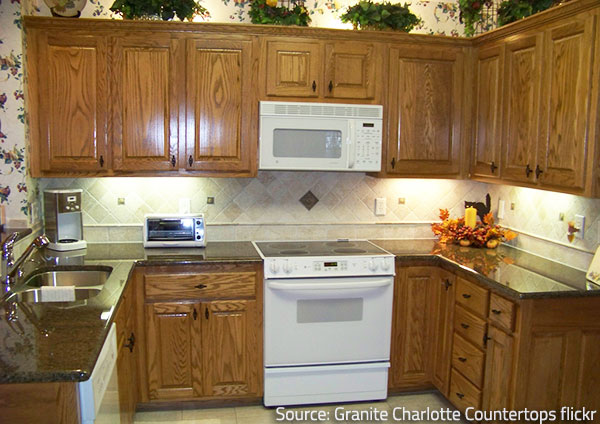
Different types of countertops have different pros and cons – research all your options and choose the best countertop material for your needs and preferences.
When comparing different countertop materials and prices, have in mind that besides natural stones and solid surfaces you have a number of other beneficial options as well: concrete, laminate, stainless steel, quartz, tiles, etc.
So, which is the best countertop material for your kitchen design?
There is no right or wrong answer—it all depends on the particular circumstances in your case. If you are seeking a truly unique look and you can keep up with a regular sealing schedule, natural stone is quite a lovely choice. If you need durable surfaces that are practically maintenance-free, solid surface countertops will probably work better for you. They have a lot of appeal, come in countless colors, have inconspicuous seams, resist stains, and allow unique designer solutions. Besides, natural stone countertops usually cost more than solid surface countertops, so if you are on a tight budget, keep this in mind.
Once you’ve made the decision, don’t risk the glamorous look of your new kitchen countertops and have them professionally installed by a certified professional.










